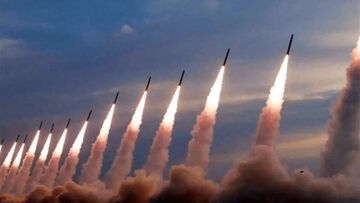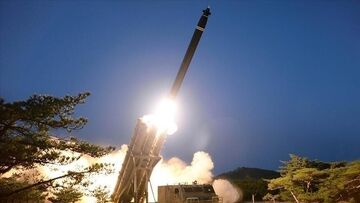TEHRAN(Bazaar) – Professor Hossein Askari, who teaches international business at the George Washington University, says India could provide Iran with an important alliance to obtain concessions from China and Pakistan and even from the United States.
He also adds that “For Iran, India could provide a channel to blunt U.S. sanctions and bargaining with China.”
Following is the text of the Bazaar interview with Professor Hossein Askari.
Bazaar: The Indian Foreign Minister was the first foreign diplomatic official to meet with Ebrahim Raisi following his victory in the Iranian presidential election. The day before the inauguration ceremony, he met again with Ebrahim Raisi. What was the main reason for these meetings?
Askari: I think that the new Iranian president wants to have all options open to him going forward with the ability to balance one country against another. To develop a balanced foreign policy for its immediate region, to the East, Iran has to consider relations with India, Pakistan, Afghanistan and China, to the North Russia and the central Asia countries and to the West relations with Persian Gulf Cooperation Council Arabs and Iran’s allies Iraq, Syria and Hezbollah. And further afield the United States with bases to the West, the South and the North and of course Turkey to the West. President has a great deal of juggling ahead. India could be helpful as a foil against Pakistan and China.
Bazaar: Ebrahim Raisi also showed the importance of India's position in the foreign relations of his government by accepting the Indian Foreign Minister as the first representative of a foreign country. What are the reasons for India's importance to Iran at this time?
Askari: Again, repeating what I have said before, India could provide Iran with an important alliance to obtain concessions from China and Pakistan and even from the United States. Moreover, with the Taliban in charge in Kabul and Iran and Pakistan about to be full members of the Shanghai Cooperation Agreement, Indian will be more anxious to have better relations with Iran, affording Iran more concessions from India.
Bazaar: It is said that one of the reasons for India's closeness to Iran is the rise of the Taliban in Afghanistan. Now that the Taliban have taken control of Kabul, how close can Iran-India relations be in terms of the Taliban gaining power in Afghanistan?
Askari: Yes, the rise of Taliban is only a part of the story. I think a bigger part is Iran’s pending full membership of the Shanghai Cooperation Organization along with Pakistan. And of course China and Russia are its principal members. India sees closer relations between Iran and Pakistan and China a regional threat. Of course Pakistan is India’s nemesis and China is Pakistan’s big backer. As important is Iran’s increasing collaboration with China and the signing of the 25-year Iran-China Cooperation Agreement, a direct result of the U.S. essentially cancelling the JCPOA and imposing more sanctions on Iran.
India’s best bet to counter Pakistan and China and a rising Taliban is to have better relations with Iran.
For Iran, India could provide a channel to blunt U.S. sanctions and bargaining with China.
Bazaar: Chabahar port is one of the symbols of Iran-India cooperation. China does not seem to be very happy with this cooperation. Given the rise of the Taliban in Afghanistan, how do you assess the future of this project? Because India was trying to get to Central Asia through this port and through Afghanistan.
Askari: While for Iran, relations with China will be of paramount importance, I think that Iran will persuade its Chinese allies that it is best to complete this project by placing additional safeguards to protect Iranian and Chinese interests. Iran will argue that this project will further blunt America’s role in the region and ultimately benefit China too. So I believe that the project will go ahead with new safeguards. But again, let me emphasize that the West is fast losing Iran. Iran is for all intents and purposes in the Chinese-Russian camp. And continued debilitating sanctions and reluctance to remove them will make this definite for the foreseeable future.
Bazaar: Given China's special relationship with Pakistan and the closeness of Pakistan and Saudi Arabia to the Taliban in Afghanistan, it seems that Afghanistan under Taliban control is not Iran's preferred option; despite the fact that Iran has influence over part of the Taliban. Will not this issue cause more convergence between Iran and India and the development of Chabahar port? If so, what will be the Chinese government's approach and the issue of 25-year Beijing-Tehran cooperation?
Askari: Let me first state that historically Afghanistan has been very important for Iran. Under the Shah and after the Revolution, those selected to be Ambassadors to Kabul were much more senior diplomats than the importance of Afghanistan would suggest. Moreover, language and cultural relations have also been close links between the two countries. There are nearly 3 million Afghani refuges in Iran, a number that could swell to 5 million at least for a short time before they try to make their way to Turkey and onward to Europe.
Having said this, let me repeat that I believe Chabahar will move ahead with limitations that will be acceptable to China. At the same time, let me say that Iran can use the Taliban takeover to get concessions from India. And while Iran may not be happy with the Taliban in charge, Iran will be happy to see the United States leave its Eastern border. Also, I firmly believe that with the debacle in Afghanistan, the U.S. will begin to make secret concessions to Iran, whether it is for direct assistance in Afghanistan or permission to fly drones across Iranian territory for reconnaissance in Afghanistan.
So all in all, I believe that on balance Iran will benefit from the overthrow of the Afghan government and the embarrassing evacuation of the United States.















نظر شما